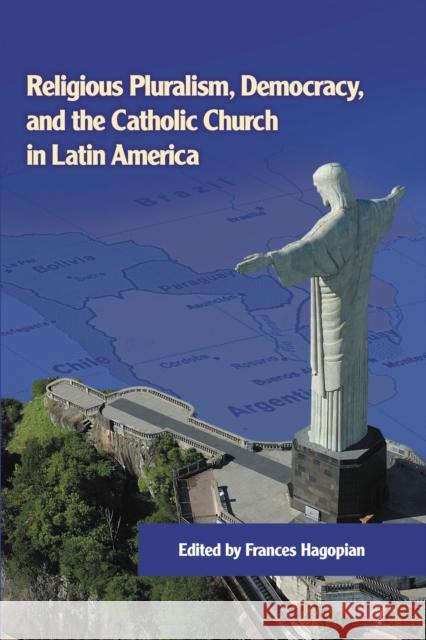Religious Pluralism, Democracy, and the Catholic Church in Latin America » książka
Religious Pluralism, Democracy, and the Catholic Church in Latin America
ISBN-13: 9780268030872 / Angielski / Miękka / 2009 / 528 str.
Religious Pluralism, Democracy, and the Catholic Church in Latin America
ISBN-13: 9780268030872 / Angielski / Miękka / 2009 / 528 str.
(netto: 69,49 VAT: 5%)
Najniższa cena z 30 dni: 72,82
ok. 22 dni roboczych.
Darmowa dostawa!
The Roman Catholic Church in Latin America faces significant and unprecedented challenges. Most prominent among them are secularization, globalizing cultural trends, intensifying religious competition, and pluralism of many kinds within what were once hegemonic Catholic societies. The substantial and original essays in this volume assess the ways in which the Catholic Church in Latin America is dealing with these political, religious, and social changes. Most importantly, they explore how democracy has changed the Catholic Church and, in turn, how religious changes have influenced democratic politics in Latin America.Drawing on the experiences of several countries to illustrate broad themes and explain divergent religious responses to common challenges, the contributors advance the notion that the Catholic Church's effectiveness in the public sphere and even its long-term viability as a religious institution depend on the nature and extent of the relationship between the hierarchy and the faithful. The essays address the context of pluralist challenges, the ideational, institutional, and policy responses of the Catholic hierarchy, and the nature of both religious beliefs and democratic values at the individual level in Latin America today. "Religious Pluralism, Democracy, and the Catholic Church in Latin America" is a much needed volume. The book is highly original, relevant, and will stimulate new research on religion in Latin America. Kenneth Serbin, University of San Diego Religion and politics, two of the great topics of all time, stir intense passions and often deep conflicts they have done so in Latin America's history. Hagopian's book thoughtfully examines religious pluralism in Latin America and its impact on politics and society, with special attention to cultural change, gender, the family, education, and beliefs about justice and morality as they bear on democracy. Hagopian's own three chapters frame the book and make it a cohesive and thought-provoking intellectual project. Jorge I. Dominguez, Harvard University This book makes an original contribution to our understanding of the challenges facing the Catholic Church in Latin America in the wake of democratic transitions and increasing religious pluralism. It also provides important insights into how church leaders are responding to these challenges in a number of key countries. Philip Williams, University of Florida "











